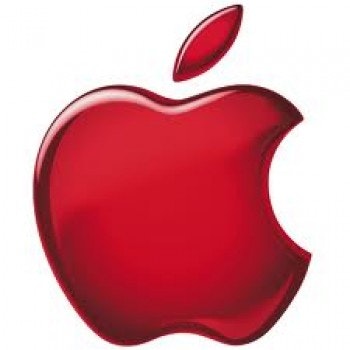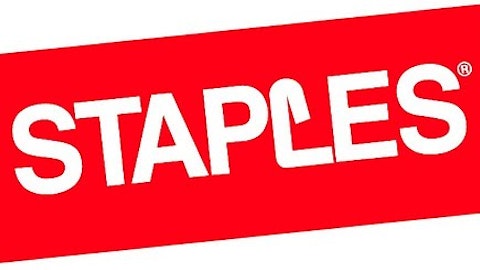Talk of Apple Inc. (NASDAQ:AAPL) and Taiwan Semiconductor Mfg. Co. Ltd. (ADR) (NYSE:TSM) pairing up has been around for ages. The largest contract chip manufacturer in the world has never scored a direct deal with Apple, even as some of its chips inevitably find their way into iDevices via other companies.Tensions between Apple Inc. (NASDAQ:AAPL) and Samsung have steadily risen, even as Samsung currently produces the processors for iDevices. That whole product-copying-and-global-patent-war thing doesn’t bode well for business relationships. It should be obvious why Apple is interested in moving chips away from its frenemy, and the two primary candidates have always been Taiwan Semiconductor Mfg. Co. Ltd. (ADR) (NYSE:TSM) or Intel Corporation (NASDAQ:INTC), or some combination thereof.
Rumors resurfaced last week about Intel and Apple Inc. (NASDAQ:AAPL) exploring a foundry deal, following Intel’s announcement that it would begin producing 14-nanometer chips for Altera Corporation (NASDAQ:ALTR) in a similar capacity. Altera’s not nearly as big a fish as Apple, and many analysts think it could pave the path for Intel and Apple to get together at last.
Knowing where to look
However, it turns out that there may be evidence that Apple is now working directly with TSMC. The company recently upgraded its Apple TV set-top box without fanfare. Initial reports based on FCC documents suggested the device could carry an upgraded A5X chip, the same one found in the third-generation iPad. It turns out that the device ended up carrying the same A5 chip as before — except with one notable difference: it was much smaller physically.
There has been a die shrink with the processor, which points to a smaller manufacturing node. It’s going to require some deeper digging from specialists like Chipworks to determine the true origins of the silicon, but this could very likely be the first A-chip made by TSMC for Apple, potentially on TSMC’s 28-nanometer process.
Don’t stop me if you’ve heard this one before
When transitioning to smaller manufacturing nodes, Apple Inc. (NASDAQ:AAPL) has been known to test new processes out on low-unit products in order to minimize risk should things turn sour.
For example, when progressing from Samsung’s 45-nanometer process to its 32-nanometer process, Apple Inc. (NASDAQ:AAPL) used the iPad 2 as a testing ground after it released the iPad 3. Since the older-generation model wouldn’t fetch as many sales, if the new manufacturing process proved problematic it wouldn’t be the end of the world, since it wouldn’t threaten sales of the flagship device. The updated iPad 2 enjoyed better battery life as a result of the improved power efficiency.
Fast forward a few months, and lo and behold Apple Inc. (NASDAQ:AAPL) had Samsung build all of its A6 processors in the iPhone 5 on the same 32-nanometer process. Test new process out on low-unit product; roll out to high-volume product if things go swimmingly; rinse; repeat.
Wait for it
It’s still possible that Samsung made the smaller chip, but the South Korean conglomerate’s 28-nanometer process reportedly isn’t ready for prime time yet, as it was targeting mass production capabilities by late this year. TMSC still has a lead over Samsung at that node, and is boosting capital expenditures this year to try and keep it that way.
The company has a “near-monopoly” on advanced manufacturing nodes (65-nanometer and below), since many smaller rivals in the contract manufacturing business simply can’t afford to keep up. Samsung is a heavyweight and can afford to keep up, but it’s still slightly behind the times. Needless to say, Intel has deep pockets and unrivaled manufacturing prowess, but has historically shied away from foundry deals.
Since MacRumors crudely uncovered the chip by simply ripping open a new Apple TV, investors still need to await a more thorough analysis to know for sure. However, if this smaller A5 indeed hails from TSMC, that would be a huge supplier shift for Apple Inc. (NASDAQ:AAPL).
The article Are Apple and Taiwan Semiconductor Together at Last? originally appeared on Fool.com.
Fool contributor Evan Niu, CFA, owns shares of Apple. The Motley Fool recommends Apple and Intel. The Motley Fool owns shares of Apple and Intel.
Copyright © 1995 – 2013 The Motley Fool, LLC. All rights reserved. The Motley Fool has a disclosure policy.






